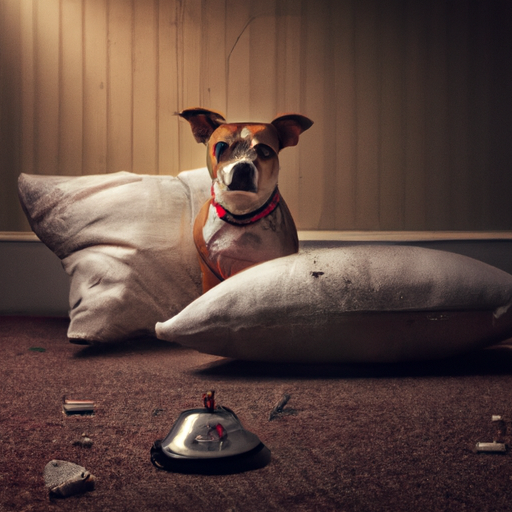Understanding Separation Anxiety in Dogs
Separation anxiety is a serious condition that affects many dogs. It’s a state of distress that your beloved pet may go through when you, their trusted caregiver, are not around. Imagine being so attached to someone that their mere absence causes you to feel extremely nervous or fearful. That’s what a dog with separation anxiety experiences.
Causes of Separation Anxiety in Dogs
The exact cause of separation anxiety in dogs is not well understood. However, there are several factors that may contribute:
- Change in routine: Dogs are creatures of habit, and any alteration in their daily schedule can cause them stress.
- Change in environment: Moving to a new house or a change in the family structure (like a divorce or a new baby) can also trigger separation anxiety.
- Trauma or past experiences: Dogs who have been adopted from shelters and those who have experienced traumatic events are more likely to develop separation anxiety.
Symptoms of Separation Anxiety in Dogs
When you’re away, does your dog exhibit any of the following behaviors?
- Excessive barking, howling, or whining
- Destructive chewing or scratching at doors and windows
- Pacing or restlessness
- Accidents in the house even though they’re house trained
These could be signs of separation anxiety. However, it’s important to consult with a vet to rule out any medical issues that could be causing these behaviors.
How to Help Your Dog Manage Separation Anxiety
As a caregiver, your heart aches when your pet is in distress. Here are a few strategies you can use to ease your dog’s anxiety:
- Gradual desensitization: Start by leaving your dog alone for short periods, gradually increasing the duration over time.
- Training and mental stimulation: Keep your dog’s brain engaged with puzzle toys or training exercises.
- Medication: In severe cases, your vet may prescribe medication to help manage the anxiety.
Remember, patience and compassion are key when dealing with a dog with separation anxiety.
Separation Anxiety in Dogs: Prevention Tips
Preventing separation anxiety in dogs starts with building a strong, healthy relationship with your pet. Here are some tips:
- Establish a predictable routine for your dog.
- Allow your dog to spend time alone while you’re still home.
- Avoid overly emotional departures and greetings.
| Tips for Prevention | Description |
|---|---|
| Routine | Keep a consistent schedule |
| Alone Time | Encourage independence |
| Emotional Control | Keep your emotions in check |
Frequently Asked Questions (FAQs)
Q: Can separation anxiety in dogs be cured?
A: While there’s no definitive ‘cure’, with the right strategies and patience, you can significantly reduce or even eliminate your dog’s separation anxiety.
Q: Are certain breeds more prone to separation anxiety?
A: There’s no concrete evidence to suggest that certain breeds are more prone to separation anxiety than others. It can affect any dog, regardless of breed.
Q: Can I get professional help for my dog’s separation anxiety?
A: Absolutely! Professional dog trainers and animal behaviorists can provide valuable insight and assistance in managing your dog’s separation anxiety.



